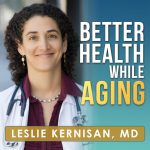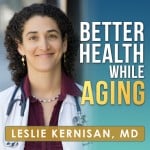
In This Episode:
The patient must have a copy of his own record. He must be involved with organizing and recording the variables so that the course of his own data on disease and treatment will slowly reveal to him what the best care for him should be.” — Dr. Lawrence Weed, “Your Health Care and How to Manage It” (1975)
Dr. K discusses the flaws of healthcare and how medicine could be improved, per the insights of visionary healthcare reformer Dr. Lawrence Weed, who died earlier this month at age 93. She covers:
- What is optimal medical care, and why doctors often fail to provide it to their patients
- Why usual medical care — which relies mainly on doctors using their own internal knowledge and mental processes — leads to disorderly healthcare and frequent errors in diagnosis and management
- Dr. Weed’s seminal insight that “Any system of care that depends on the personal knowledge and analytic capabilities of physicians cannot be trusted.“
- Why Dr. Weed believed that healthcare professionals should use “knowledge couplers” and other more reliable tools to guide the process of evaluation and diagnosis, instead of relying on their own mental processes
- Dr. Weed’s belief that the patient should be much more involved in his or her care, and that doctors should help patients make choices, rather than choose for them
- Why Dr. Weed advocated for a better medical record, and why he wanted patients to have access to it
- Dr. Weed’s lifelong advocacy for a healthcare system that would be orderly and reliable for evaluation, diagnosis, and documentation, but then would be flexible and individualized when it comes to treatment for individual patients
- Tips on how older adults and their families can get better care from their doctors, and support the improvements that Dr. Weed envisioned


